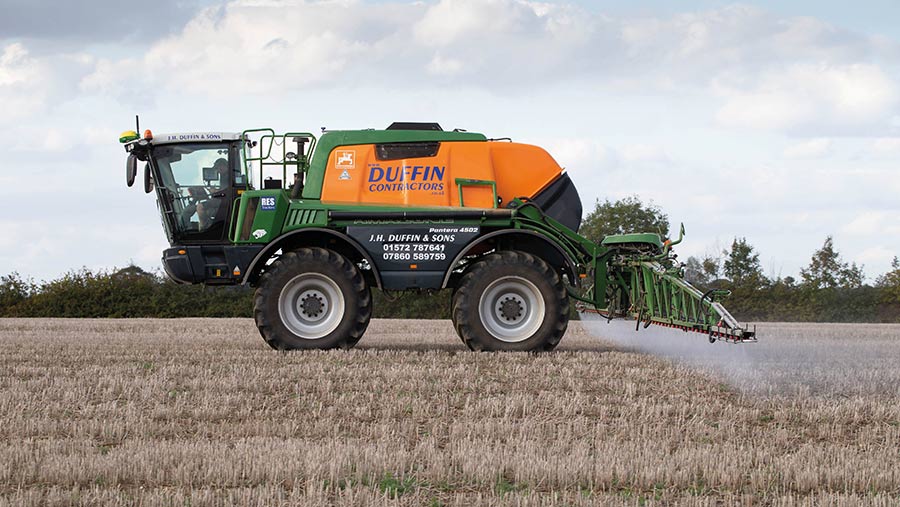Efsa glyphosate review finds ‘no critical areas of concern’
 © Tim Scrivener
© Tim Scrivener The EU’s food safety regulator has published its peer assessment on glyphosate, which concludes the world’s most widely used weedkiller does not pose “unacceptable” risks to health.
The European Food Safety Authority (Efsa) published a summary of its assessment and peer review of glyphosate on 6 July. It found “no critical areas of concern” in its use in agriculture for humans, animals, or the environment, but acknowledged there are “some data gaps”.
Glyphosate’s authorisation for use in the EU is due to expire on 15 December this year and Efsa’s view of its safety is a key factor over whether its licence will be renewed.
See also: How Danish grower cut pesticide use and improved soil health
Bayer, the makers of Roundup weedkiller which includes glyphosate as its main active ingredient, welcomed Efsa’s announcement.
“This final scientific conclusion lays the basis for the successful reapproval of glyphosate in the EU and is consistent with conclusions from leading health regulatory bodies from around the world for nearly 50 years,” said a spokesman.
“It is now up to the European Commission and the member states to take a final decision on the re-approval of glyphosate in due consideration of the Efsa’s conclusion and to ensure that glyphosate is available to European farmers beyond 2023.”
However, environmental and anti-pesticide lobby groups blasted Efsa’s conclusion. The Pesticide Action Network Europe (Pan Europe) said it was “deeply concerned” by the whole process.
Angeliki Lysimachou, head of science and policy at Pan Europe, said: “From cancer, neurotoxicity, impact on the microbiome, soil health, bees and ecosystems, our regulators turn their back on all the potential harms reported following glyphosate exposure.”
Since Britain left the EU in January 2021, an independent pesticides regulatory regime is in operation in Great Britain (England, Scotland and Wales). The Health and Safety Executive remains the national regulator for the whole of the UK, on behalf of the UK government and the devolved administrations.
Under the terms of the withdrawal agreement and Northern Ireland Protocol, EU plant protection product legislation continues to apply in Northern Ireland.
The UK government previously announced that all active substances due to expire between 1 January 2021 and 31 December 2023 would be granted a three-year extension under the new GB pesticides regulation regime.
Conservation agriculture at risk without glyphosate, study warns
Glyphosate underpins €2.7bn (£2.31bn) of annual farm production and 38% of farmers practising no-till soil management would abandon the system if its was not available.
These are the stark conclusions of a recently published study on conservation agriculture conducted by five universities covering Denmark, France, Germany, Italy, Poland and Spain, which was sponsored by Bayer.

